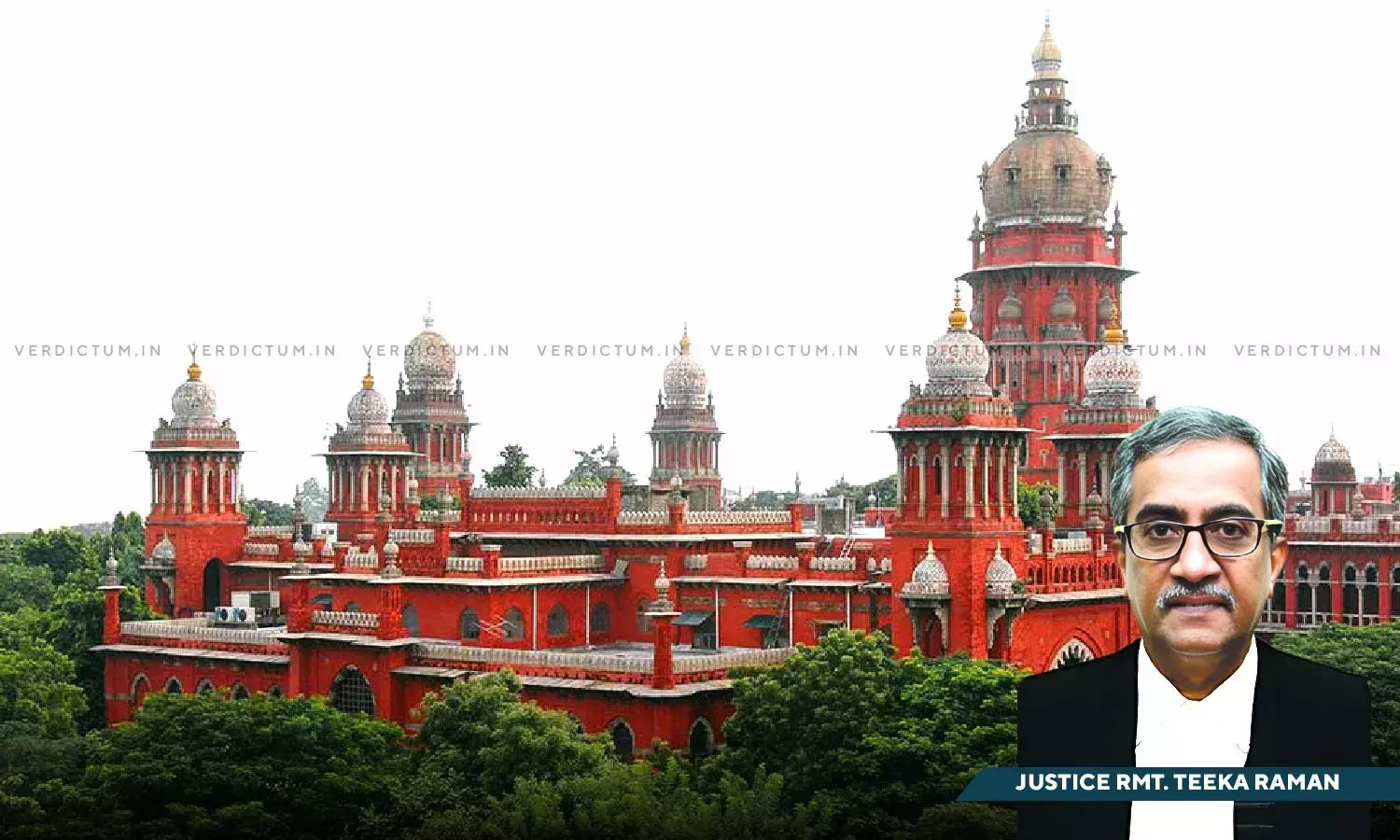Live-In Relationship Cannot Be Considered Legitimate When One Partner Is Already Married To Another Person: Madras HC
The Madras High Court has clarified that a live-in relationship cannot be considered legitimate when one of the partners is already married to another person.
The Single-Judge Bench of Justice RMT Teekaa Raman in a Judgment dated June 7, emphasized that such relationships do not confer succession or inheritance rights upon the surviving partner.
"In the instant case, admittedly Stella wife of the appellant was alive with the children and in the absence of any divorce as per the codified personal law for Christians to be obtained by the appellant and father, his association with Arulmozhi (now deceased) cannot be termed as a “live-in”relationship, as projected by the learned counsel for the appellant. In the absence of any codified law in this regard, they cannot seek any succession or inheritance of the property," the Court said.
The Court's order came in response to an Appeal filed by P Jayachandran challenging a Trial Court's decision. Jayachandran and Margarette Arulmozhi had been living together without formal marriage. Notably, Jayachandran was already married to another woman and had five children from that marriage, although they were not legally divorced.
The issue arose over a property dispute following Arulmozhi's death in 2013. Initially, the property was registered in Arulmozhi's name through a settlement deed executed by Jayachandran. However, after Arulmozhi's demise, Jayachandran attempted to revoke the settlement deed unilaterally. Subsequently, Arulmozhi's father laid claim to her property, leading to a legal battle.
Jayachandran argued before the Court that he should inherit Arulmozhi's property based on their live-in relationship, asserting their relationship was akin to a marital union.
However, the Court dismissed Jayachandran's claims, citing that his status as a married man invalidated any purported live-in relationship with Arulmozhi. The Court stressed that such relationships are not recognized under law when one of the partners is already married, labeling them as "misnomer" and worthy of criticism.
The Bench said, "The position may be different if the two persons are unmarried and the parties being adults choose to lead their lives in a way of their own. This Court has noted that, of late, adults who indulge in extramarital relationship are labelling it as “live-in”relationship, which is misnomer and it is to be deprecated."
Quoting from a Judgment, the Single-Judge Bench stated, "Where a man and a woman are proved to have lived together as husband and wife, the law presumes that they are living together in consequence of a valid marriage will not apply." The Court further clarified that Jayachandran's association with Arulmozhi did not meet the criteria of a marital relationship but rather resembled that of a concubine, lacking the legal sanctity of marriage.
"..hence, the relationship between the appellant and Arulmozhi (now deceased) was not a relationship in the nature of a marriage and the status of the said person is that of a concubine. A “concubine” cannot maintain a relationship in the “nature of marriage” because such a relationship will not have exclusivity and will not be monogamous in character and consequently he cannot enter into relationship in the nature of a marriage," the Court added.
Consequently, the Court upheld the trial court's decision, affirming Arulmozhi's father and other legal heirs as rightful claimants to her property.
Accordingly, the Court ordered, "Pending appeal, original plaintiff died and hence as per Section 45 of the Indian Succession Act, newly impleaded parties are entitled for such a relief. Consequently the judgment and decree in O.S.No. 33 of 2013 dated 12.02.2016 is hereby confirmed."
Cause Title: P. Jayachandran v. A. Yesuranthinam (Died) and Others
Appearance:-
Appellant: Advocate C. Shankar
Respondent: Advocate G.Jeremiah
Click here to read/download the Judgment




